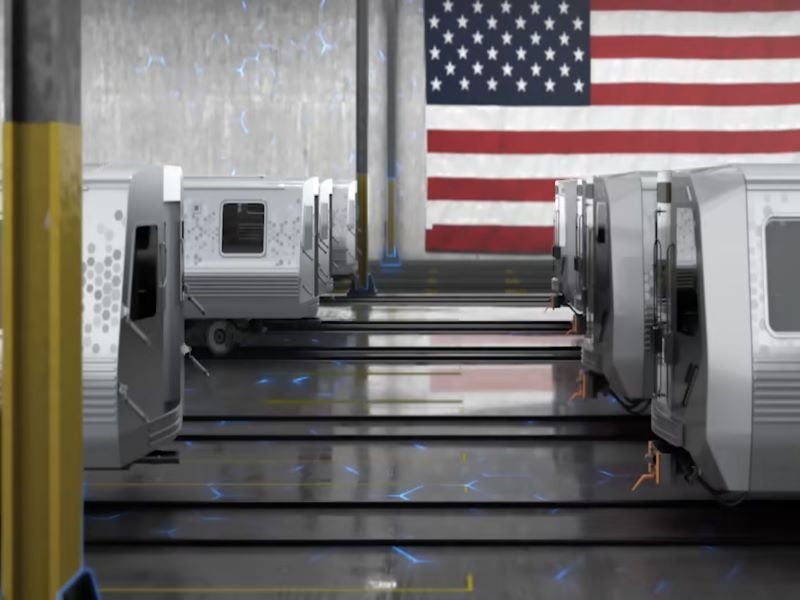
Rolling stock manufacturer Hitachi Rail is set to build its new factory for railcars in Washington County in Maryland, US.
Developed with an investment of $70m, the new facility will be used for the construction of new 8000-series railcars for the Washington Metropolitan Area Transit Authority (Metro).

Discover B2B Marketing That Performs
Combine business intelligence and editorial excellence to reach engaged professionals across 36 leading media platforms.
With a capacity to serve the broader North American railway market, the new site will build modern railcars for the Washington DC region.
The new factory is expected to be operational in 2023/24.
Featuring 307,000ft² of space, the new facility will have the potential to manufacture around 20 railcars per month on a single shift once it becomes completely operational.
The facility will be suitable to construct different types of trains ranging from trams and metros to high-speed trains.

US Tariffs are shifting - will you react or anticipate?
Don’t let policy changes catch you off guard. Stay proactive with real-time data and expert analysis.
By GlobalDataHitachi Rail’s new facility is said to sustain a total of 1,300 jobs in the region, including 460 employees who will work for the company at the site.
Hitachi Rail Group CEO Andrew Barr said: “I’m delighted to confirm the location of our new state-of-the-art US train factory in Washington County, Maryland.
“From here, our 460 strong American workforce will build a fleet of modern metro trains and have the capability to build trains for towns and cities across North America.”
Initially, Hitachi Rail will deliver an 8000-series fleet for Metro from the new factory as part of a $2.2bn contract that was secured in March last year.
With additional options of up to 800 in the fleet, the base order consists of 256 new railcars.
The all-electric vehicles with 130 seats per pair of cars will replace the 2000-series and 3000-series fleets that are under operation from the early 1980s.





